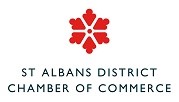Company Voluntary Arrangement (CVA)
A CVA is where a deal is formulated between the company and all of its creditors.
The procedure is an alternative to liquidation.
Procedure
- Proposals and a statement of the company’s affairs are formulated with the assistance of an Insolvency Practitioner (IP).
- The IP reports to the court on the proposals stating whether, in his opinion, the arrangement has a reasonable prospect of approval and implementation, along with his consent to act.
- A moratorium can be filed at court to stay the action of all creditors whilst the CVA is being formulated. This lasts for 28 days from the date filed at court and can be extended by a further 2 months if necessary. This applies to small companies only and needs to be advertised and filed with the Registrar of Companies.
- A meeting of creditors to consider the proposals is convened at which a 75% majority in value of creditors attending and voting is required to approve the CVA.
- A meeting of the shareholders is also required to approve the CVA.
- The CVA is implemented and the client pays into a fund held by the IP acting as the supervisor.
- Creditors are repaid regularly over the term of the arrangement or in accordance with the approved proposals.
Practical
Secured creditors rights are not and cannot be affected by a CVA without their express consent.
The directors remain in office throughout the course of the CVA.
There is no ‘standard’ CVA proposal but in every case, the company must have a viable core business.
Proposals can be based on :
» Profit contributions
» Sale of surplus company assets
» Higher realisations of book debts or sale of assets at going concern values
…or any combination of the above.
The proposals can be flexible and can incorporate the specific requirements of the company.
Advantages over Liquidation
The costs of operating a voluntary arrangement are lower than the costs of a liquidation.
There are advantages to all parties, such as :
» Creditors receive higher dividends.
» The company survives and the directors continue in office.
» Employees’ jobs are protected.
For more information and/or for a free initial meeting and confidential advice, without obligation, please call 01582 469700.




